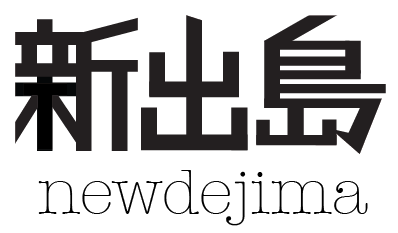香港にアジアの「地域統括本部」機能を置く外資系企業の数が過去最高となる。中国本土をにらむ好立地や簡素な税制と低い法人税率、自由な情報の流通などが企業を引き付けた。日経より。
2011/10/29
2010/12/02
"Money falls from the sky" from South China Morning Post
"HUBEI - More than 7,000 yuan (HK$8,160) in cash flew down from the window of a high-rise apartment building in Wuhan on Tuesday and was picked up by passers-by on the streets below, the Wuhan Evening News reports. A woman appeared in the neighbourhood 90 minutes later in the hope of getting back the money. She said her sister had dropped it."
ラベル:
貨幣/currency,
管理/management,
湖北/Hubei,
発生/happening,
武漢/Wuhan,
流/flow
2010/11/19
"Latin America braces for bubbles as funds flow in" from South China Morning Post
"Foreign capital flows last year and this year will likely be Latin America's highest for any tow-year period since 1993-94, the World Bank says.
That time around, the boom in foreign investment immediately preceded currency crises in Mexico and Argentina after inflows reversed.
"It feels like a bubble, it smells like a bubble and it probably is," RBS said in a report on emerging market inflows."
That time around, the boom in foreign investment immediately preceded currency crises in Mexico and Argentina after inflows reversed.
"It feels like a bubble, it smells like a bubble and it probably is," RBS said in a report on emerging market inflows."
ラベル:
南米/South America,
流/flow
2010/11/15
"Ghosts of a summit past haunt the G20 in Seoul" from South China Morning Post
"As world leaders assemble in Seoul today for the G20 meeting, many will have a similar summit 25 years ago very much on their minds.
At first glance the two gatherings may not look similar. Back in 1985 only five countries were involved: the United States, Japan, Germany, France, and Britain."
"Immediately following the September 1985 agreement the yen rose rapidly against the US dollar, appreciating 12 per cent in just seven days of trading. As the first chart below shows, by the end of 1987, just over two years later, the yen had doubled in value against the US currency.
According to the plan, the stronger yen should have made Japan's exports less competitive while increasing Japanese consumers' appetite for imports, which should have reduced the size of Japan's current account surplus and brought the world economy back into balance.
But things didn't work out like that. Japanese exporters raised their game, and demand in the rest of the world for Japanese goods was undiminished. In yen terms, Japan's current account surplus barely changed. In US dollar terms, as the second chart shows, it almost doubled. The global economy remained as unbalanced as ever.
And the consequences for Japan were catastrophic. While the government embarked on financial deregulation, the Bank of Japan kept domestic interest rates low to counter the effect of currency appreciation. The result was an orgy of lending and a sharp increase in leverage which fuelled massive asset bubbles in the stock and property markets. The bust, when it came, was so severe it plunged Japan into its economic "lost decade" of the 1990s.
Today economist argue China could learn from that lesson and avoid the monetary policy mistakes Japan made following the Plaza Accord. But Chinese leaders have already learned a much simpler lesson: be wary of international agreements to appreciate currency."
At first glance the two gatherings may not look similar. Back in 1985 only five countries were involved: the United States, Japan, Germany, France, and Britain."
"Immediately following the September 1985 agreement the yen rose rapidly against the US dollar, appreciating 12 per cent in just seven days of trading. As the first chart below shows, by the end of 1987, just over two years later, the yen had doubled in value against the US currency.
According to the plan, the stronger yen should have made Japan's exports less competitive while increasing Japanese consumers' appetite for imports, which should have reduced the size of Japan's current account surplus and brought the world economy back into balance.
But things didn't work out like that. Japanese exporters raised their game, and demand in the rest of the world for Japanese goods was undiminished. In yen terms, Japan's current account surplus barely changed. In US dollar terms, as the second chart shows, it almost doubled. The global economy remained as unbalanced as ever.
And the consequences for Japan were catastrophic. While the government embarked on financial deregulation, the Bank of Japan kept domestic interest rates low to counter the effect of currency appreciation. The result was an orgy of lending and a sharp increase in leverage which fuelled massive asset bubbles in the stock and property markets. The bust, when it came, was so severe it plunged Japan into its economic "lost decade" of the 1990s.
Today economist argue China could learn from that lesson and avoid the monetary policy mistakes Japan made following the Plaza Accord. But Chinese leaders have already learned a much simpler lesson: be wary of international agreements to appreciate currency."
ラベル:
ソウル/Seoul,
貨幣/currency,
管理/management,
流/flow
2010/10/28
"Mainland property investors have been turning in growing numbers to more transparent and stable Western market since the beginning of the year to cash in on falling prices and weaker currencies. Australia, Britain and Canada are the most popular destinations for the investors, and Japan's property market - considered to be at the bottom of a market cycle - is also popular option, analysts say." from South China Morning Post
ラベル:
市場/market,
不動産/property,
流/flow
登録:
投稿 (Atom)






